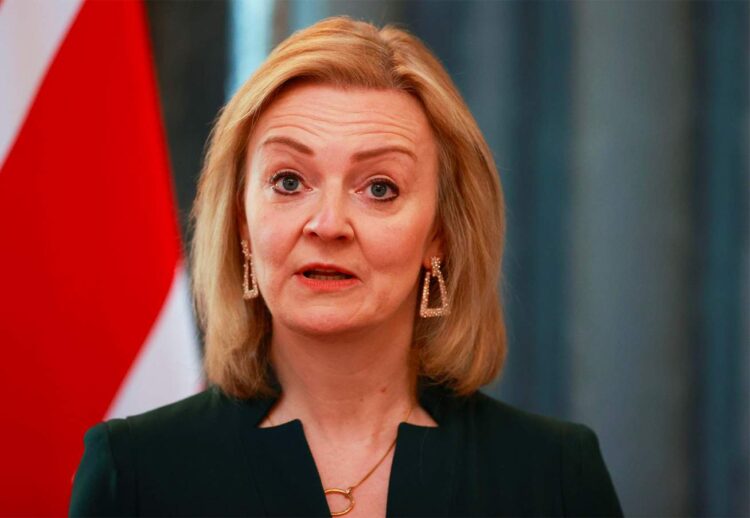By Ben Kerrigan-
Liz Truss has been accused of “running scared” of scrutiny after pulling out of a BBC interview scheduled for Tuesday, meaning she is likely to become prime minister without undergoing a single set-piece broadcast quizzing.
The foreign secretary pulled out of a primetime interview with the veteran political journalist Nick Robinson on BBC One, something already done by Rishi Sunak,
A BBC spokesperson said Truss had now cancelled the interview. “Ms Truss’s team say she can no longer spare the time to appear on Our Next Prime Minister,” they said. “We regret that it has not been possible to do an in-depth interview with both candidates despite having reached agreement to do so.”
A source in Sunak’s campaign criticised the fact that Truss had done just two broadcast interviews of any form during the campaign, whereas Sunak had undertaken nine, also including three spots on BBC Radio 4’s Today programme and an appearance on ITV’s This Morning.
A source from the former chancellor’s campaign said: “Its important that candidates face proper scrutiny so that members and the public know what they are offering.
“Avoiding that scrutiny suggests either Truss doesn’t have a plan at all or the plan she has falls far short of the challenges we face this winter.”
Labour shadow minister Conor McGinn added: “People will rightly conclude that she doesn’t want to answer questions about her plans for the country because she simply hasn’t got any serious answers to the big challenges facing our country.”
Mr Robinson expressed disappointed and frustration that his interview with Ms Truss had been cancelled.
The winner of the leadership race – and next prime minister – will be announced on 5 September.
The contest was triggered after Boris Johnson was forced to resign following a number of scandals.
Foreign Secretary Ms Truss has been widely tipped as the frontrunner for much of the race.
The final Tory leadership hustings will take place this Wednesday in London.
The victor will face growing pressure to announce further support to get households and businesses through the cost of living crisis as soon as they get the keys to Number 10.
It follows Friday’s announcement from Ofgem that the energy price cap would rise by 80% come October, leading to the average household paying £3,549 a year for their gas and electricity.
A government spokesperson said the Civil Service is “making the appropriate preparations in order to ensure that any additional support or commitments on cost of living can be delivered as quickly as possible when the new prime minister is in place”.




